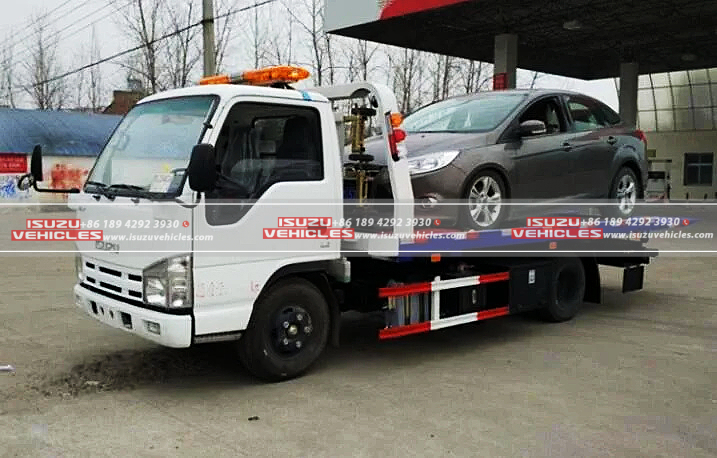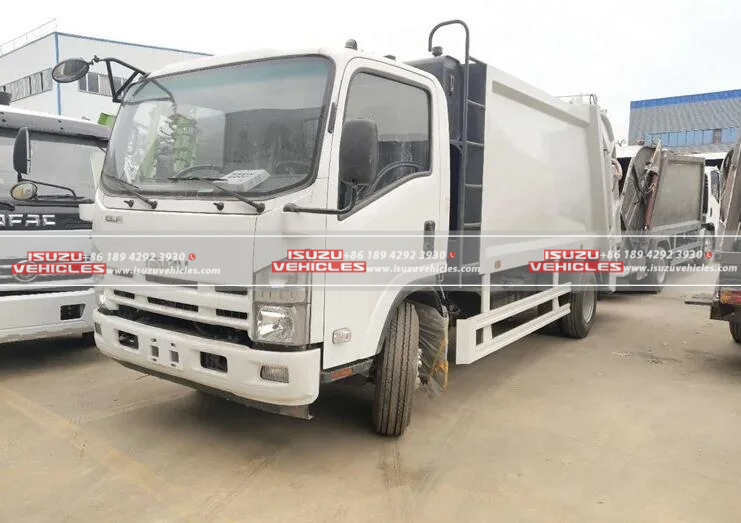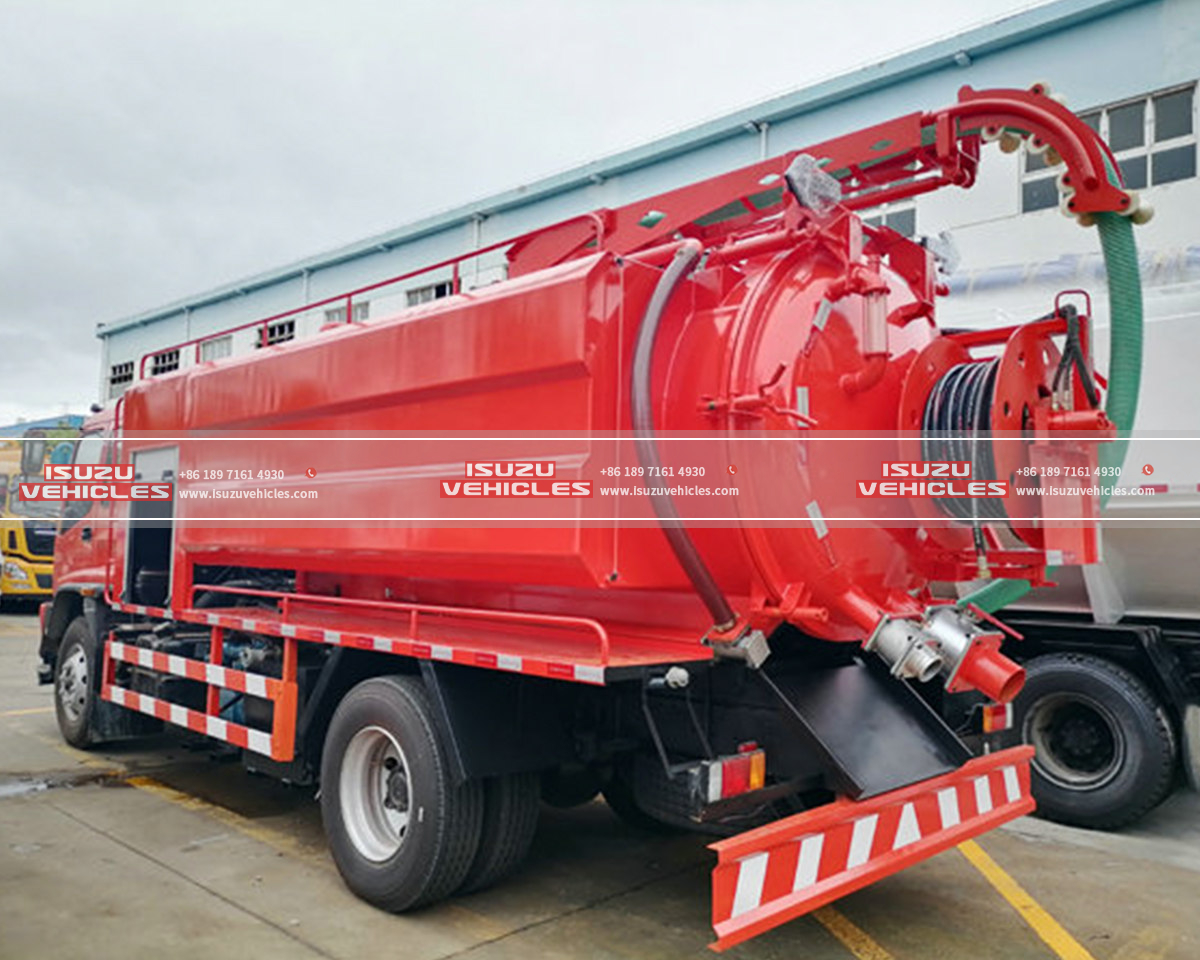Fuel efficiency is a critical consideration for truck owners and fleet operators, as fuel costs account for a significant portion of operating expenses. Isuzu trucks, known for their durability and performance, are engineered to provide excellent fuel economy. However, maintaining optimal efficiency requires more than just owning a well-designed vehicle—it also involves adopting effective driving habits, regular maintenance, and leveraging innovative technologies.
This blog explores key strategies to help you maximize fuel efficiency with your Isuzu truck, whether you’re driving a cargo truck, dump truck, or tow truck. By following these tips, you can reduce costs, minimize environmental impact, and extend the lifespan of your vehicle.
The Importance of Regular Maintenance
Proper maintenance is one of the most critical factors in achieving and maintaining fuel efficiency for your Isuzu truck. Neglecting routine checks can lead to poor engine performance, higher fuel consumption, and costly repairs down the road.
Engine Tune-Ups for Optimal Performance
Regular engine tune-ups are essential for maintaining fuel efficiency in any Isuzu truck. A well-maintained engine operates more efficiently, using less fuel to generate power. Regularly changing the oil, replacing air filters, and inspecting spark plugs ensures that the engine runs smoothly and minimizes unnecessary fuel consumption.
For vehicles like Isuzu cargo trucks, which often handle long hauls and heavy loads, a clean air filter is particularly important. Clogged filters restrict airflow, forcing the engine to work harder and burn more fuel. Replacing air filters as recommended by the manufacturer can improve mileage and reduce emissions.
Checking Tire Pressure and Alignment
Proper tire maintenance is another crucial factor in improving fuel efficiency. Underinflated tires increase rolling resistance, making the engine work harder to move the truck. Over time, this leads to higher fuel consumption and uneven tire wear. Use a reliable gauge to check tire pressure regularly and ensure it matches the levels specified in the Isuzu truck’s manual.
Additionally, wheel alignment should be inspected periodically. Misaligned wheels can cause the truck to pull to one side, requiring more energy to stay on course and consuming more fuel in the process. Proper alignment not only improves mileage but also enhances overall safety and handling.
Driving Habits That Enhance Fuel Efficiency
How you drive your Isuzu truck has a significant impact on fuel consumption. Adopting fuel-efficient driving techniques can help you save money and reduce your environmental footprint without compromising performance.
Avoid Aggressive Driving
Aggressive driving—such as rapid acceleration, hard braking, and speeding—can dramatically reduce fuel efficiency. For every instance of sudden acceleration, the engine consumes more fuel than necessary to produce the required power.
To maximize the fuel economy of your Isuzu truck, maintain a consistent speed and accelerate gradually. Use cruise control on highways whenever possible, as it helps reduce fuel consumption by maintaining a steady pace. Additionally, avoid unnecessary braking by anticipating traffic conditions and slowing down gradually when approaching stops.
Optimize Speed for Efficiency
Driving at excessive speeds significantly reduces fuel efficiency, especially for large vehicles like Isuzu dump trucks and Isuzu tow trucks, which face higher wind resistance. While every truck has its ideal speed range for fuel economy, keeping your speed between 50–65 mph typically yields the best results.
Reducing speed not only saves fuel but also decreases wear and tear on your Isuzu truck, reducing the need for frequent repairs and extending the vehicle’s lifespan.
Managing Vehicle Load and Aerodynamics
The weight and configuration of your Isuzu truck play a significant role in determining fuel efficiency. By managing the truck’s load and optimizing aerodynamics, you can reduce drag and improve mileage.
Reduce Excess Weight
Carrying unnecessary weight increases the amount of energy the engine needs to move the vehicle. For heavy-duty trucks like Isuzu garbage trucks or Isuzu sewer trucks, it’s important to ensure that loads are distributed evenly and that no additional, nonessential cargo is being transported.
Perform regular checks to remove unnecessary items or equipment from the truck bed. Lighter loads mean less fuel consumption, and careful weight management also reduces strain on the tires and suspension system.
Minimize Aerodynamic Drag
Aerodynamic drag can significantly impact fuel efficiency, especially at higher speeds. Trucks with open beds or improperly secured loads are more susceptible to drag, causing the engine to work harder to maintain speed.
Adding aerodynamic enhancements such as wind deflectors or side skirts can help reduce drag and improve mileage for Isuzu trucks. These upgrades are particularly effective for long-haul vehicles like Isuzu cargo trucks, which spend extended periods on the highway.
Leveraging Technology for Better Fuel Economy
Modern advancements in vehicle technology provide truck owners with powerful tools to monitor and improve fuel efficiency. Isuzu trucks come equipped with features and systems that make optimizing fuel usage easier than ever before.
Utilize Telematics and Fleet Management Systems
Many Isuzu trucks are now equipped with telematics systems that provide real-time data on fuel consumption, driving habits, and vehicle performance. Fleet operators can use this data to identify inefficiencies, monitor driver behavior, and plan more fuel-efficient routes.
For example, telematics can help pinpoint instances of idling, aggressive driving, or unnecessary detours, allowing fleet managers to implement corrective measures. These insights not only improve fuel efficiency but also enhance overall productivity and operational cost-effectiveness.
Embrace Hybrid and Electric Options
As part of its commitment to sustainability, Isuzu has introduced hybrid and electric models that offer superior fuel economy and reduced emissions. Hybrid Isuzu cargo trucks and electric Isuzu garbage trucks provide the same level of power and performance as their diesel counterparts while significantly reducing fuel consumption.
Investing in hybrid or electric vehicles is an excellent long-term strategy for businesses looking to lower operational costs and reduce their environmental impact.
Proactive Maintenance and Seasonal Adjustments
To maintain fuel efficiency throughout the year, it’s essential to account for seasonal variations that can affect vehicle performance. Adjusting your Isuzu truck’s maintenance routine based on seasonal conditions ensures consistent mileage and reduces the risk of inefficiencies.
Winter Maintenance Tips
Cold weather can have a negative impact on fuel efficiency, as the engine requires more energy to reach its optimal operating temperature. During winter, consider using winter-grade engine oil, which flows more easily in low temperatures and reduces strain on the engine.
Check your tires frequently during colder months, as lower temperatures can cause tire pressure to drop, increasing rolling resistance. For Isuzu trucks that operate in snowy or icy conditions, investing in winter tires can improve traction and reduce energy loss.
Summer Maintenance Tips
In hot weather, overheating can affect engine performance and fuel efficiency. Ensure your Isuzu truck’s cooling system is functioning correctly by checking coolant levels and inspecting the radiator for leaks.
Hot weather can also increase air conditioning usage, which consumes more fuel. Use the air conditioning sparingly and opt for natural ventilation when driving at lower speeds to conserve energy.
Maximizing fuel efficiency with your Isuzu truck requires a combination of proper maintenance, smart driving habits, and leveraging advanced technologies. Whether you’re operating a cargo truck, dump truck, or sewer truck, these strategies will help you reduce costs, improve performance, and contribute to a more sustainable future. By staying proactive about vehicle care and adopting efficient practices, you can ensure that your Isuzu truck remains a reliable and economical asset for years to come.



